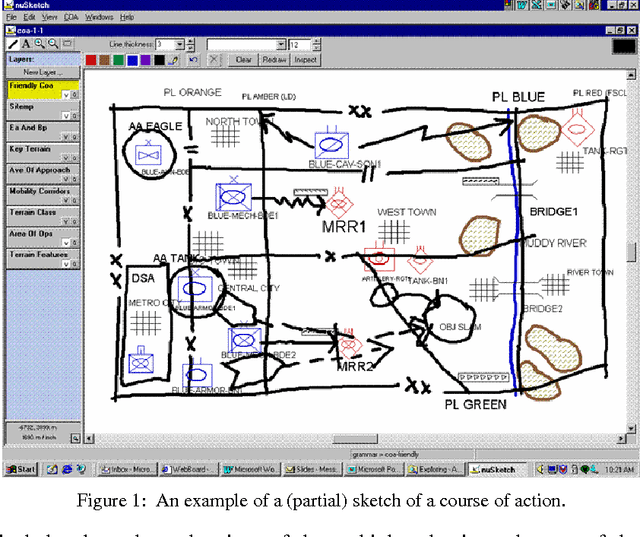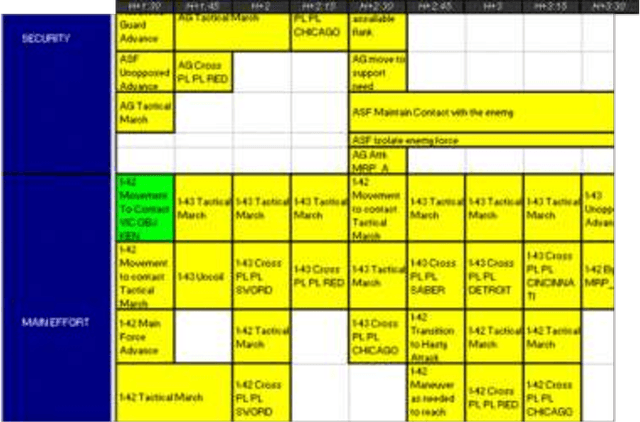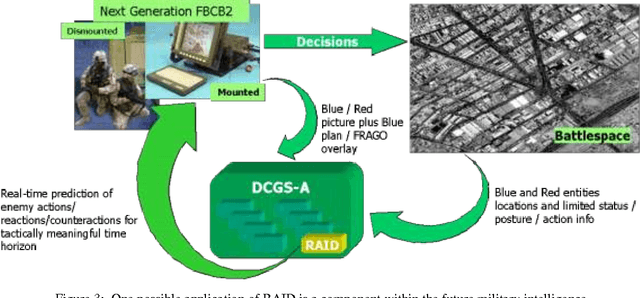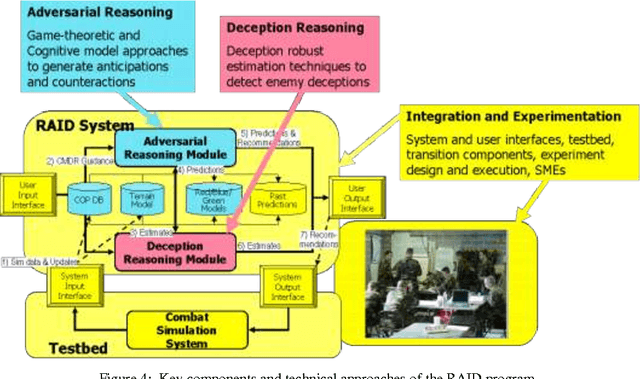Toward a Research Agenda in Adversarial Reasoning: Computational Approaches to Anticipating the Opponent's Intent and Actions
Paper and Code
Dec 25, 2015



This paper defines adversarial reasoning as computational approaches to inferring and anticipating an enemy's perceptions, intents and actions. It argues that adversarial reasoning transcends the boundaries of game theory and must also leverage such disciplines as cognitive modeling, control theory, AI planning and others. To illustrate the challenges of applying adversarial reasoning to real-world problems, the paper explores the lessons learned in the CADET - a battle planning system that focuses on brigade-level ground operations and involves adversarial reasoning. From this example of current capabilities, the paper proceeds to describe RAID - a DARPA program that aims to build capabilities in adversarial reasoning, and how such capabilities would address practical requirements in Defense and other application areas.
 Add to Chrome
Add to Chrome Add to Firefox
Add to Firefox Add to Edge
Add to Edge